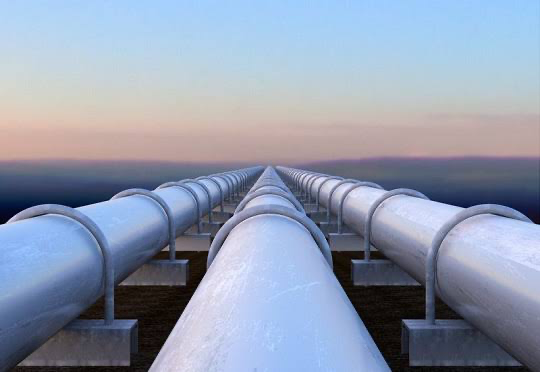KEY POINTS
- Nigeria is advancing a cross-border gas pipeline to Equatorial Guinea, aimed at exporting stranded gas through the Punta Europa LNG complex.
- The project, backed by agreements signed by Presidents Tinubu and Obiang in 2024, is central to Nigeria’s regional integration and gas monetisation drive.
- Despite financing and infrastructure hurdles, Abuja sees the pipeline as part of its long-term bid to position gas as the country’s transition fuel.
In an effort to increase export potential and fortify regional energy ties, Nigeria is proceeding with plans to link Equatorial Guinea with its enormous but underutilised natural gas reserves.
The Nigeria–Equatorial Guinea Gas Pipeline, according to Minister of State for Petroleum (Gas) Ekperikpe Ekpo, is a “strategic collaboration” that will enable Nigerian gas that is trapped in the Niger Delta to enter Equatorial Guinea’s Punta Europa complex, where it can be converted into liquefied natural gas (LNG), methanol, and other export-ready products.
The project is part of Nigeria’s larger plan to reposition gas as its transition fuel, Ekpo said during a webinar on Thursday, calling the pipeline a “commitment to regional energy interconnectivity and the monetization of stranded gas assets.”
Pipeline seen as lifeline for stranded gas and regional integration
The project expands upon a historic deal that President Bola Tinubu and President Teodoro Obiang Nguema Mbasogo of Equatorial Guinea signed in Malabo in August 2024. The agreement provided a legal foundation for the Gulf of Guinea Pipeline Project’s implementation by outlining ownership structures, transit regulations, and regulatory frameworks.
At a time when European and Asian buyers are looking for long-term gas supply contracts, the pipeline will connect Nigerian gas producers to Equatorial Guinea’s export terminals, opening an alternate route to global markets. For Abuja, it’s also an opportunity to combat persistent flaring, encourage the use of compressed natural gas (CNG) and liquefied petroleum gas (LPG) domestically, and bring in new money.
According to Ekpo, domestic industrial investments like the long-delayed Brass Fertilizer and Petrochemical project, as well as regional pipelines, continue to be the foundation of Nigeria’s larger gas roadmap. Additionally, he reaffirmed Abuja’s support for the Trans-Saharan Gas Pipeline, which would use Niger and Algeria to link Nigeria with North Africa and possibly Europe.
With an estimated 210 trillion cubic feet of proven gas reserves, Nigeria is the country with the largest reserves in Africa. However, a large portion of that resource is still untapped despite decades of policy discussion because of regulatory bottlenecks, inadequate infrastructure, and funding shortages.



